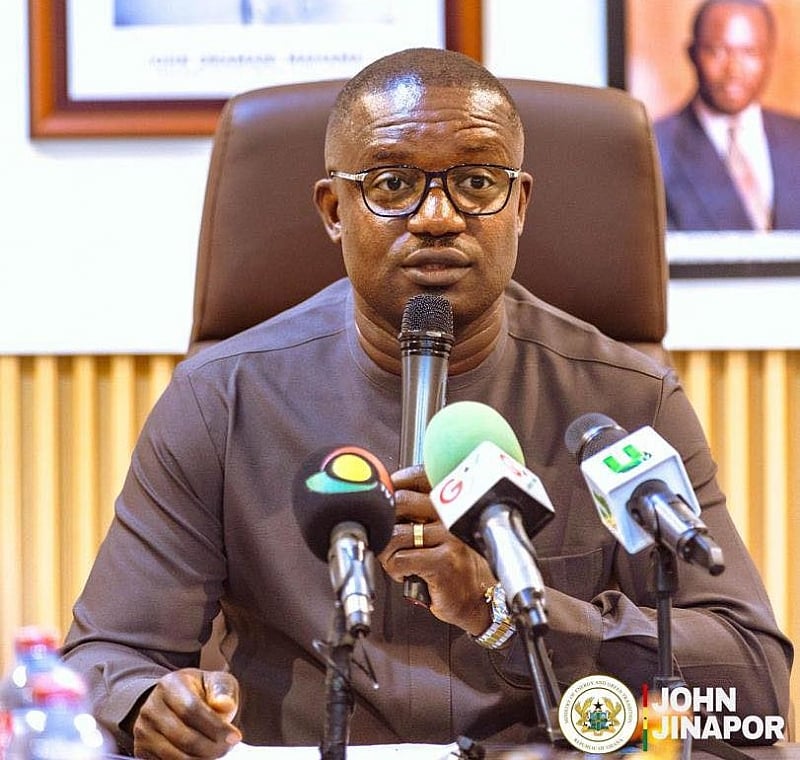The Electricity Company of Ghana (ECG) is facing a severe financial crisis, characterized by mismanagement and excessive expenditure, necessitating drastic intervention from the government. Energy and Green Transition Minister John Jinapor announced a 50% reduction in ECG’s budget allocation for the upcoming period, slashing it from GH₵500 million to GH₵250 million. This decision follows revelations of alarming financial irregularities within the company, including lost shipping containers at the port due to unpaid demurrage and a staggering overspend on procurement in 2023. The minister emphasized the critical need for financial discipline within the power sector to prevent its collapse amidst mounting debts and operational challenges.
The magnitude of ECG’s financial mismanagement is highlighted by its procurement practices in 2023. Despite being allocated GH₵935 million for procurement, the company inexplicably overspent by GH₵7.3 billion, a staggering figure representing nearly eight times the allocated budget. This excessive spending, largely attributed to over-purchasing of cables, has further crippled ECG’s financial stability and contributed significantly to the burgeoning debt within the energy sector. This situation underscores a lack of internal controls and oversight within ECG, raising serious questions about the company’s procurement processes and the accountability of its management. The missing containers, lost due to unpaid port fees, further exemplify the company’s financial disarray and operational inefficiencies.
The ramifications of ECG’s financial woes extend beyond the company itself, impacting the entire energy sector. The ballooning debt, currently exceeding GH₵80 billion, poses a significant threat to the stability of Ghana’s power supply. The inability of ECG to settle its debts with power producers creates a cascading effect, jeopardizing the financial viability of these producers and potentially disrupting their ability to generate electricity. This precarious situation necessitates immediate and decisive action to prevent a complete collapse of the energy sector, which would have devastating consequences for the Ghanaian economy and the well-being of its citizens.
Minister Jinapor, addressing Parliament, acknowledged the gravity of the situation and assured lawmakers that measures are being implemented to address the mismanagement and restore financial stability within ECG. The budget cut serves as a crucial first step in curbing excessive spending and enforcing greater financial discipline. However, addressing the root causes of the mismanagement, including strengthening internal controls, enhancing transparency in procurement processes, and improving overall operational efficiency, will be crucial for long-term sustainability. The minister stressed the government’s commitment to ensuring a stable and reliable electricity supply across the country while simultaneously tackling the deep-seated financial challenges within the power sector.
Beyond the immediate budget cuts, a comprehensive restructuring and reform of ECG’s operations are likely necessary. This could involve strengthening corporate governance, enhancing oversight mechanisms, and implementing stricter procurement protocols. A thorough investigation into the 2023 overspend and the circumstances surrounding the missing containers is essential to identify those responsible and implement appropriate corrective actions. Furthermore, exploring strategies to improve revenue collection and reduce technical losses within the distribution network will be crucial for bolstering ECG’s financial health.
The government’s commitment to tackling the financial crisis within the energy sector is commendable. However, the success of these efforts will depend on the effective implementation of the proposed measures and the commitment of all stakeholders to ensuring financial transparency and accountability. The situation demands a comprehensive and sustained approach, encompassing both short-term interventions to stabilize the immediate crisis and long-term reforms to address the underlying systemic issues plaguing the sector. The ultimate goal is to ensure a financially viable and efficient power sector capable of providing reliable and affordable electricity to all Ghanaians.














